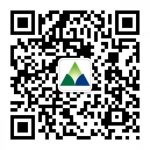DKU Library will place two print copies of required books and one print copy of recommended books for each course on Course Reserve, located on the 1st floor of the Library, Room 1008.
For recommended books not listed in your approved syllabus, please contact DKU Library.
Faculty can request to place physical DVDs on Course Reserve for 3-hour loan.
Faculty can request for digital copies of articles, book chapters or films to be added to eReserve, which is made available to students via the specific course site in Sakai or Canva.
Please note: If the item is not available at DKU Library or Duke University Libraries, or if we receive a large volume of requests, your request may take longer to process.
1. Find the catalog page of the book and then click “Get It” 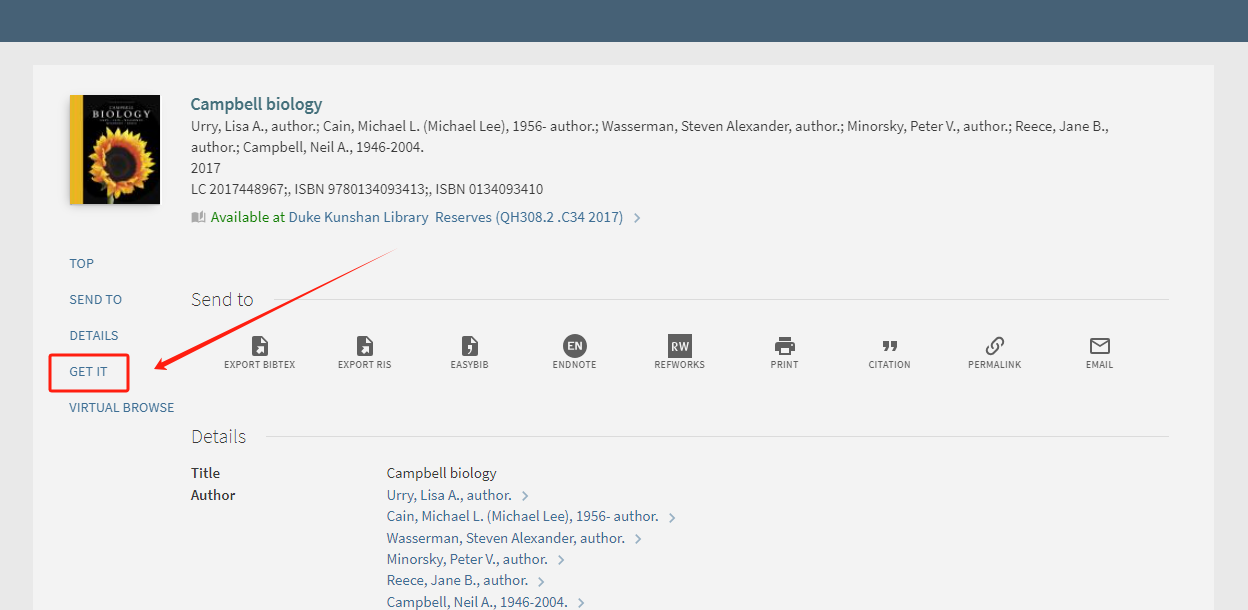
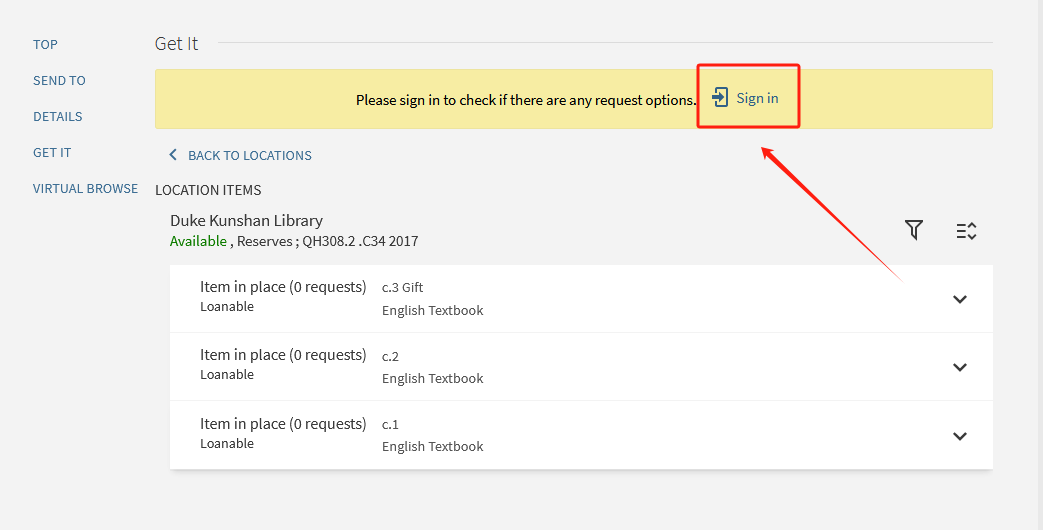

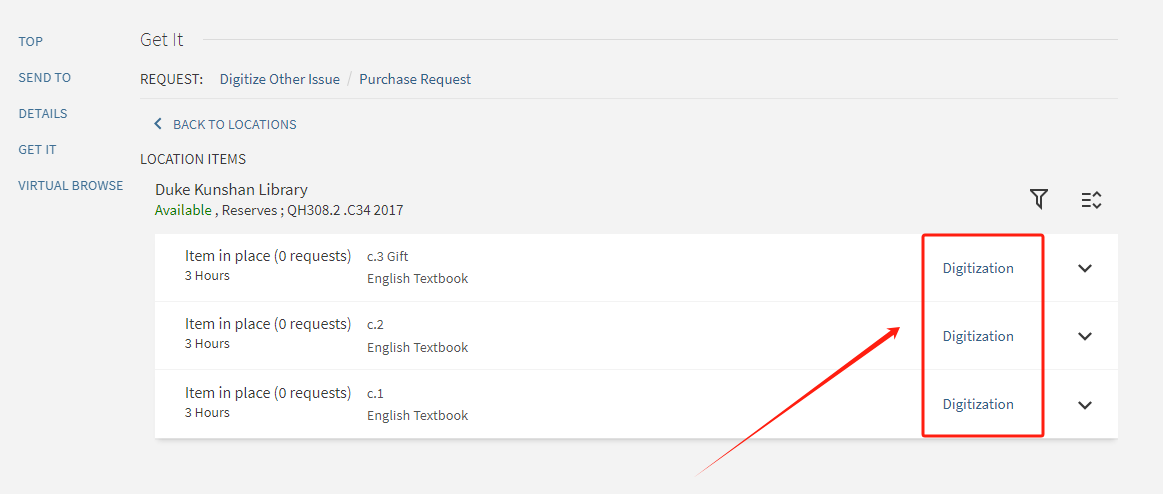

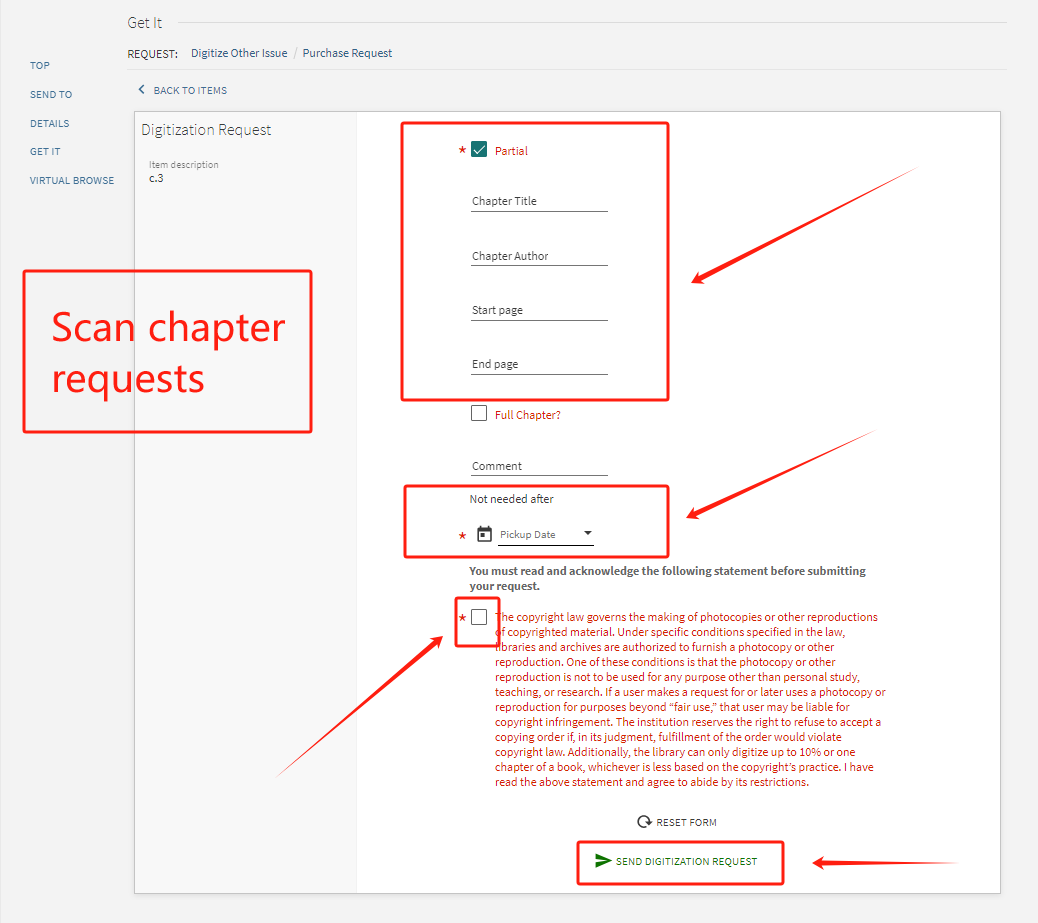
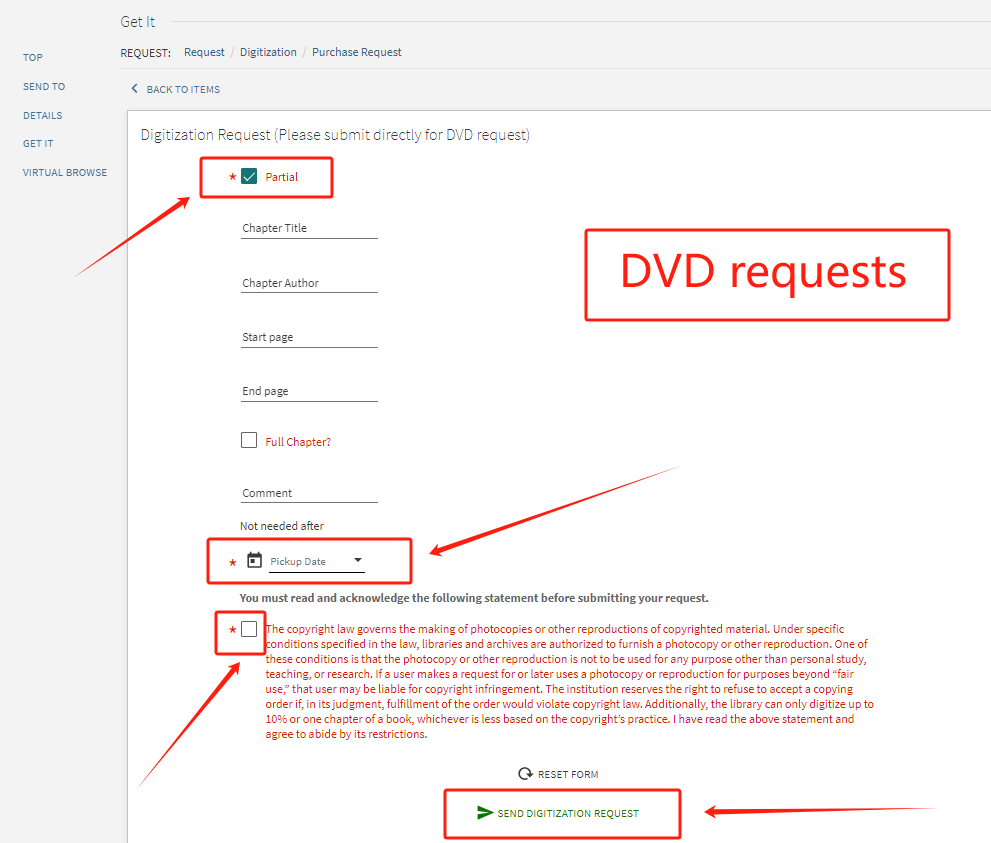
6. If the Library doesn’t have a book or a film you need, please send an email to dkulibrary@dukekunshan.edu.cn.
7. You will receive an email when your requested item is ready.
The Copyright Law of the Peoples’ Republic of China (2010 revised version) mainly governs the making of photocopies or other reproductions of copyrighted material.
Under certain conditions specified in the law, libraries and archives are authorized to furnish a photocopy or other reproduction. One of these specific conditions is that “a small amount of photocopying or reproduction” is permitted to be “used for teaching and learning or research”, not to be “used for publishing or profit.” If a user makes a request for, or later uses, a photocopy or reproduction for purposes in excess of “fair use,” that user may be liable for copyright infringement.
This institution reserves the right to refuse to accept a copying order if, in its judgment, fulfillment of the order would involve violation of copyright law.
In general, in determining fair use there are four factors:
